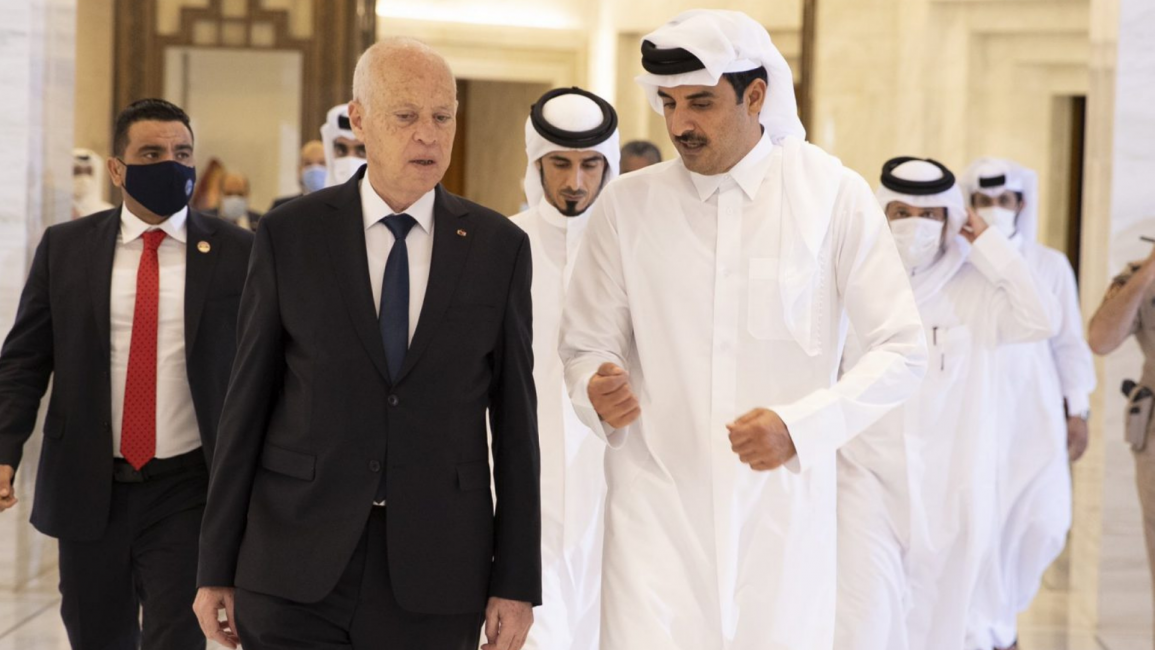Tunisia, Qatar propose 'Western-Islamic' conference amid heightened tensions
Saied told Qatar's news agency that Doha and Tunis proposed to hold a "Western-Islamic conference... aimed at achieving greater understanding and overcoming the obstacles that appear after some terrorist operations".
The initiative appeared to be at least partly in response to recent remarks by French President Emmanuel Macron that Islam is "in crisis" following a series of jihadist attacks in France.
Last month, the French leader also unveiled plans to defend his country's secular values against "Islamist radicalism", which sparked criticism from across the Muslim world.
Saied said the Western-Islamic conference's "aim is also to avoid confusing Muslims with those extremists who claim to be Muslims," the state-run news agency reported.
There is a "need to differentiate between Islam and its true purposes and terrorism, which has absolutely nothing to do with Islam", he added.
No further details of the proposed conference were given but the proposal comes after weeks of tensions between the French president and the Muslim world following the grisly beheading last month of teacher Samuel Paty, who showed his pupils cartoons of the Prophet Muhammad in a lesson on free speech.
Twitter Post
|
While paying tribute to the slain man, Macron defended France's strict brand of secularism and its long tradition of satire.
"We will not give up cartoons," he vowed.
He reiterated his point in an interview with Le Grand Continent in which he stated that, despite his respect for different cultures, "I am not going to change our laws because they shock elsewhere."
"The fight of our generation in Europe will be a combat for our freedoms," Macron said, adding that he believed they were being "overturned".
But even days before the beheading, Macron sparked outrage across the Musim world for describing Islam as "a religion in crisis".
His views have been called into question not just in angry protests across Islamic countries - many of which have called for boycotts of French products - but also by English-language newspapers and even international political allies.
The Financial Times published a piece by a correspondent that was titled "Macron's war on 'Islamic separatism' only divides France further."
The paper later took down the column, citing factual errors.
Defending France's stance in a letter to the FT in which he denied stigmatizing Muslims, Macron wrote: "France - we are attacked for this - is as secular for Muslims as for Christians, Jews, Buddhists and all believers."
Agencies contributed to this report.
Follow us on Facebook, Twitter and Instagram to stay connected



